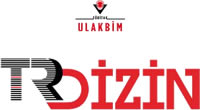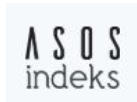Pandemi Sürecinde Okul Yönetimine İlişkin İdareci Görüşleri (Administrator’s Views on School Manegement About the Pandemic Process)
DOI:
https://doi.org/10.15659/ankad.v5i2.139Anahtar Kelimeler:
Okul idarecisi- pandemi süreci okul yönetimi- uzaktan eğitimÖzet
Yapılan bu çalışmanın amacı, pandemi sürecinde okul idarecilerinin üstlendikleri, sürece has ve yeni gelişen iş ve Yapılan bu çalışmanın amacı, pandemi sürecinde okul idarecilerinin üstlendikleri, sürece has ve yeni gelişen iş ve işlemler hakkında görüşlerini belirlemektir. Nitel bir çalışma olan bu araştırmada olgu bilimsel desen ve veri toplama yöntemi olarak yarı yapılandırılmış görüşme yöntemi kullanılmıştır. Çalışmaya Düzce ili merkezindeki çeşitli ilkokul, ortaokul ve liselerde görev yapan 29 okul idarecisi katılmıştır. Veriler araştırmacı tarafından hazırlanan yarı yapılandırılmış görüşme formu kullanılarak 14-22 Aralık 2020 tarihleri arasında toplanmıştır. Katılımcılar, araştırmacının kolay ulaşabildiği idareciler ile bu idarecilerin yönlendirdiği diğer idarecilerden kartopu örnekleme yöntemi ile belirlenmiştir. Hazırlanan yarı yapılandırılmış açık uçlu sorular katılımcılara dijital ortamda sunulmuştur. Araştırmada idarecilerin pandemi sürecinde karşılaştıkları güçlükler, yalnızlaşma, canlı ders atama problemleri, “Okulum Temiz” iş ve işlemleri (MEB tarafından pandemi sürecinde okullarda uygulanması istenen proje), temizlik personeli ihtiyacı, yüz yüze eğitim iş ve işlemleri olarak belirlenmiştir. Araştırmada idarecilerin zaman, mekân, mesai saati gibi kavramları gözetmeksizin, eğitim işlerini aksatmamak amacıyla yoğun tempoda çalıştıkları sonucuna ulaşılmıştır. Gerekli maddi kaynağa ulaşmak için çareler aramış, bilgi eksikliği doğan durumlarda idareciler arası dayanışma ile problemlerine çözümler ürettikleri tespit edilmiştir. Ders planlaması yaparken öğretmen ve öğrencilerin mağdur edilmemesi için çaba gösterdikleri tespit edilmiştir. Eğitim öğretimi aksatmamak ve var olan kaynakları en üst seviyede kullanmak adına çalışmalar yürüttükleri sonucuna ulaşılmıştır.
Referanslar
Aydın, C.H. (2005). Açık ve uzaktan öğrenmede kullanılan basılı materyallerdeki anlatım biçimine ilişkin öğrenen tercihleri. Anadolu Üniversitesi Sosyal Bilimler Dergisi,
(1), 131-147.
Bilgiç, H.G. & Tüzün, H. (2015). Yükseköğretim kurumları web tabanlı uzaktan eğitim programlarında yaşanan sorunlar. Açıköğretim Uygulamaları ve Araştırmaları Dergisi, 1(3), 26-50.
Binbaşıoğlu, C. (1988). Eğitim yöneticiliği. Ankara: Binbaşıoğlu Yayınevi.
Bozkurt, A. (2020). Korona virüs (Covid-19) pandemi süreci ve pandemi sonrası dünyada eğitime yönelik değerlendirmeler: Yeni normal ve yeni eğitim paradigması. Açıköğretim Uygulamaları ve araştırmaları Dergisi, 6(3), 112-142.
Bonk, C. (2001). Online teaching in an online world. http://www.publicationshare.com/docs/faculty_survey_report.pdf Erişim tarihi: 23.04.2020
Burkhauser, S., Gates, S. M., Hamilton, L. S., & Ikemoto, G. S. (2012). Challenges and opportunities facing principals in the first year at a school (Report No. RB-9643- NLNS). California: RAND Corporation. Retrieved from https://www.rand.org/pubs/research_briefs/RB9643.html
Calman, R. C. (2010). Exploring the underlying traits of high-performing schools.
Toronto:Education Quality and Accountability Office.
Campbell, R. F., J. E. Corbally & R. O. Nystrand (1983). Introduction to educational administration. Boston: Allyn & Bacon.
Chen, N. S. & Wang Y. P. (2008). Testing principles of language learning in a cyber face
-to - face environment. Educational Technology & Society, 11(3), 97 -113.
Collinson, V. & Cook, T. F. (2007). Organizational learning: Improving learning, teaching, and leading in school systems. Thousand Oaks, CA: Sage.
Kurnaz, E & Serçemeli, M.(2020).Covid-19 Pandemi döneminde akademisyenlerin uzaktan eğitim ve uzaktan muhasebe eğitimine yönelik bakış açıları üzerine bir araştırma. Uluslararası Sosyal Bilimler Akademi Dergisi, 2(3), 262-288.
Demarest, E. J. (2011). A learning-centered framework for education. New York, NY: Teachers College Press.
Duran, N., Önal, A. & Kurtuluş, C. (2006). E-öğrenme ve kurumsal eğitimde yeni yaklaşım öğrenim yönetim sistemleri. Bilgi Teknolojileri Kongresi IV, Akademik Bilişim, Bildiriler Kitabı, s. 97-101.
Düzakın, E. & Yalçınkaya, S. (2008). Web tabanlı uzaktan eğitim sistemi ve Çukurova üniversitesi öğretim elemanlarının yatkınlıkları, Ç.Ü. Sosyal Bilimler Enstitüsü Dergisi, 17(1), 225-244
Fenwick, L. T. (2000). The principal shortage: Who will lead? Cambridge, MA: Harvard Principals’ Center.
Fink, D. (2010). The succession challenge: Building and sustaining leadership capacity through succession management. Thousand Oaks, CA: Sage.
Friedman, I. A. (2002). Burnout in school principals: Role related antecedents. Social Psychology of Education, (5), 229-251. Retrieved from https://www.researchgate.net/profile/Isaac_Friedman/publication/225636119_B urnout_in_School_Principals_Role_Related_Antecedents/links/5b34d169a6fdcc 8506d79eee/ Burnout-in-School-Principals-Role-Related-Antecedents.pdf
Falowo, R. O. (2007). Factors impeding implementation of web-based distance learning. AACE Journal, 15(3), 315-338.
Gökçe, A.T. (2008). Küreselleşme sürecinde uzaktan eğitim. Ziya Gökalp Eğitim Fakültesi Dergisi, 11, 1-12.
McCracke, G. (1988). The Long Interview, Londra: Sage Publications.
Green, R. L. (2010). The four dimensions of principal leadership: A framework for leading 21st century schools. Boston: MA: Allyn & Bacon.
Groff, F. (2001). “Who Will Lead? The Principal Shortage”. State Legislatures. 27(9):16-19.
Sertdemir, A. (2020). Türkiye’nin koronavirüsle mücadele performansı üzerine bir değerlendirme. Nazilli İktisadi ve İdari Bilimler Fakültesi Dergisi, 1(1), 15 – 26.
Budak, F. & Korkmaz, Ş. (2020). Covıd-19 pandemi sürecine yönelik genel bir değerlendirme: Türkiye örneği. Sosyal Araştırmalar ve Yönetim Dergisi, 1, 62-79.
İnan, C. (2013). Dicle üniversitesi öğretim üyelerinin uzaktan eğitim konusundaki görüşlerinin değerlendirilmesi. Elektronik Eğitim Bilimleri Dergisi, 2(4), 66-73.
Jasper, M. A. (1994). Issues in phenomenology for researchers of nursing. Journal of Advanced Nursing, 19, 309- 314.
Karaman, S. (2007). Ders web sayfaları: özellikleri, hazırlanması, kullanılması ve öğretim elemanlarının tutumu, İnönü Üniversitesi Eğitim Fakültesi Dergisi, 7(13), 47-68.
Külekçi Akyavuz, E. & Çakın, M. (2020). Covid-19 salgınının eğitime etkisi konusunda okul yöneticilerinin görüşleri. Turkish Studies, 15(4), 723-737. https://dx.doi.org/10.7827/TurkishStudies.44140
Lacey, K. (2002). Avoiding the principalship. Principal Matters, 53, 25-29.
Li, X. (2009). Review of distance education used in higher education in China. Asian Journal of Distance Education, 7(2), 22-27.
Mahiroğlu, A. & Coşar, M. (2008). Web tabanlı uzaktan eğitimde sıra, hız ve içerik kontrollerinin akademik başarıya etkisi, Türk Eğitim Bilimleri Dergisi, 6(1), 63- 83
March, James. G. & Herbert, A. S. (1975). Örgütler. (Çeviren: Ömer Bozkurt ve Oğuz Onaran) Ankara: TODAİE Yayınları No: 144.
Meriwether, C. & Duyar, İ. (1997). Okul yönetimi. Ankara: YÖK/Dünya Bankası Milli Eğitimi geliştirme projesi. Ankara: MEB Hizmet Öncesi Öğretmen Eğitimi Dizisi.
Millî Eğitim Bakanlığı Okul Öncesi Eğitim ve İlköğretim Kurumları Yönetmeliği. (2014). Resmi Gazete, 29072, 26 Temmuz 2014. https://www.meb.gov.tr/egitim-kurumlarina-hijen-ve-enfeksiyon-onleme-standardi/
Newby, T. J., Stepich, D. A., Lehman, J. D. & Russell, J. D. (2006). Instructional technology for teaching and learning: Designing instruction, integrating computers and using media (Third edition). Englewood Cliffs, New Jersey: Prentice Hall College Div.
Özlü, Ö. (2011). Uzaktan eğitim metoduyla sürdürülebilirlik eğitimi uygulamaları üzerine bir araştırma. Yayımlanmamış yüksek lisans tezi. Maltepe Üniversitesi, Sosyal Bilimler Enstitüsü, İstanbul.
Rummel, J.F. (1968). Eğitimde araştırmaya giriş (Çev:R.Taşçıoğlu).Ankara:Ajans Türk Yayınları
Searby, L., Browne-Ferrigno, T. & Wang, C. (2016). Assistant principals: Their readiness as
ınstructional leaders. Leadership and Policy In Schools, 16(3), 397-430. doi: 10.1080/15700763.2016.1197281
Seven, M. A. (2012). Uzaktan ve örgün eğitime devam eden öğrencilerin İngilizce dersindeki başarı düzeylerinin karşılaştırılması. EKEV Akademi Dergisi, 6(50), 215-228.
Shoho, A. R. & Barnett, B. G. (2010). The realities of new principals: challenges, joys and sorrows. Journal of School Leadership, 20(5), 561-596. doi: 10.1177/105268461002000503
Spillane, J. P., & Lee, L. C. (2014). Novice school principals’ sense of ultimate responsibility: Problems of practice in transitioning to the principal’s office. Educational
Administration Quarterly, 50(3), 431-465. doi: 10.1177/0013161X13505290
Şen, B. Atasoy, F. & Aydın, N. (2010). Düşük maliyetli web tabanlı uzaktan eğitim sistemi uygulaması. Akademik Bilişim 2010, Muğla Üniversitesi, Muğla.
Şendağ, S. & Gündüz, Ş. (2007). Öğretmen adaylarının web tabanlı öğrenme materyalinin
kullanılabilirliği ve etkinliği hakkındaki görüşleri. Mehmet Akif Ersoy Üniversitesi Eğitim Fakültesi Dergisi, 14, 137-149.
Şenkal, O. & Dinçer, S. (2012). Geleneksel sınıfların uzaktan eğitim platformuna dönüştürülmesi: Bir model çalışması. Bilişim Teknolojileri Dergisi, 5(1), 13-17.
Tuncer, M. & Taşpınar, M. (2008). Sanal ortamda eğitim ve öğretimin geleceği ve olası
sorunlar. Sosyal Bilimler Dergisi, 10(1), 125-144.
UNESCO. (2020). Startling digital divides in distance learning emerge. UNESCO. https://en.unesco.org/news/startling-digital-divides-distance-learning-emerge
Yalman, M., & Kutluca, T. (2013). Öğretmen Adaylarının Öğrenme ve Öğretme Sürecinde PowerPoint Kullanımlarına İlişkin Tutumlarının Belirlenmesi. Journal of Instructional Technologies &Teacher Education, 2(1), 41-54.
Yıldırım, A. & Şimşek, H. (2013). Sosyal bilimlerde nitel araştırma yöntemleri. (9.
Baskı). Ankara: Seçkin Yayıncılık.
Yılmaz, E., Mutlu, H., Güner, B., Doğanay, G. & Yılmaz, D. (2020). Veli algısına göre pandemi dönemi uzaktan eğitim sürecinin niteliği. Konya: Palet Yayıncılık.
Yayınlanmış
Nasıl Atıf Yapılır
Sayı
Bölüm
Lisans
Telif Hakkı (c) 2024 Anadolu Kültürel Araştırmalar Dergisi (ANKAD)

Bu çalışma Creative Commons Attribution-NonCommercial 4.0 International License ile lisanslanmıştır.













